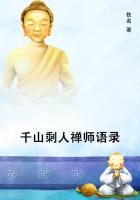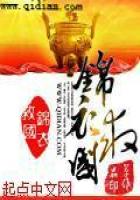Among others Sir William Hamilton has left a pleasing description of Miss Edgeworth. 'If you would study and admire her as she deserves, you must see her at home,' says he, 'and hear her talk.
She knows an infinite number of anecdotes about interesting places and persons, which she tells extremely well, and never except when they arise naturally out of the subject. . . . To crown her merits, she seemed to take a prodigious fancy to me, and promised to be at home, and made me promise to be at Edgeworthstown for a fortnight some time next vacation.' We owe to him also an amusing sketch of some other collateral members of the family; the fine animated old lady, who immediately gets him to explain the reason why a concave mirror inverts while a convex mirror leaves them erect; the young ladies, one of whom was particularly anxious to persuade him that the roundness of the planets was produced by friction, perhaps by their being shaken together like marbles in a bag.
There is also an interesting letter from Sir W. Hamilton at Edgeworthstown on 23rd September 1829. Wordsworth is also staying there. 'After some persuasion Francis and I succeed in engaging Mr. Wordsworth in many very interesting conversations.
Miss Edgeworth has had for some time a very serious illness, but she was able to join us for dinner the day that I arrived, and she exhibited in her conversations with Mr. Wordsworth a good deal of her usual brilliancy; she also engaged Mr. Marshall in some long conversations upon Ireland, and even Mr. Marshall's son, whose talent for silence seems to be so very profound, was thawed a little on Monday evening, and discussed after tea the formation of the solar system. Miss Edgeworth tells me that she is at last employed in writing for the public after a long interval, but does not expect to have her work soon ready for publication.' [There is a curious criticism of Miss Edgeworth by Robert Hall, the great preacher, which should not be passed over.
'As to her style,' he says, 'she is ****** and elegant, content to convey her thoughts in their most plain and natural form, that is indeed the perfection of style. . . . In point of tendency,'
he continues, 'I should class her books among the most irreligious I ever read. . . . She does not attack religion nor inveigh against it, but makes it appear unnecessary by exhibiting perfect virtue without it. . . . No works ever produced so bad an effect on my own mind as hers.']
Besides Wordsworth and Sir William Hamilton and Mr. Marshall, we presently come to Sir John Herschell. 'I saw your admirable friend Miss Edgeworth lately in town,' he writes to Hamilton;'she is a most warm admirer of yours, and praise such as hers is what any man might be proud of.' Later on Miss Edgeworth, corresponding with Sir W. Hamilton, tells him she is ill and forbidden to write, or even to think. This is what she thinks of THINKING: 'I am glad to see that the severe sciences do not destroy the energy and grace of the imagination, but only chasten it and impart their philosophical influence.'
VCertain events are remembered and mourned for generations, so there are others, happy and interesting in themselves, which must continue to give satisfaction long after they are over, and long after those concerned in them have passed away. And certainly among things pleasant to remember is the story of Sir Walter Scott's visit to Ireland in July 1825, when he received so warm a greeting from the country and spent those happy hours with Miss Edgeworth at Edgeworthstown. Fortunately for us, Lockhart was one of the party. Anne Scott, and Walter the soldier, and Jane Scott the bride, were also travelling in Sir Walter's train. The reception which Ireland gave Sir Walter was a warm-hearted ovation. 'It would be endless to enumerate the distinguished persons who, morning after morning, crowded to his levee in St.
Stephen's Green,' says Lockhart, and he quotes an old saying of Sir Robert Peel's, 'that Sir Walter's reception in the High Street of Edinburgh in 1822 was the first thing that gave him (Peel) a notion of the electric shock of a nation's gratitude.'
'I doubt if even that scene surpassed what I myself witnessed,'
continues the biographer, 'when Sir Walter returned down Dame Street after inspecting the Castle of Dublin.'
From ovations to friendship it was Sir Walter's inclination to turn. On the 1st August he came to Edgeworthstown, accompanied by his family. 'We remained there for several days, ****** excursions to Loch Oel, etc. Mr. Lovell Edgeworth had his classical mansion filled every evening with a succession of distinguished friends. Here, above all, we had the opportunity of seeing in what universal respect and comfort a gentleman's family may live in that country, provided only they live there habitually and do their duty. . . . Here we found neither mud hovels nor naked peasantry, but snug cottages and smiling faces all about. . . . Here too we pleased ourselves with recognising some of the sweetest features in Goldsmith's picture of "Sweet Auburn! loveliest village of the plain."' Oliver Goldsmith received his education at this very school of Edgeworthstown, and Pallas More, the little hamlet where the author of THE VICAR OFWAKEFIELD first saw the light, is still, as it was then, the property of the Edgeworths.
So Scott came to visit his little friend, and the giant was cheered and made welcome by her charming hospitality. It was a last gleam of sunshine in that noble life. We instinctively feel how happy they all were in each other's good company. We can almost overhear some of their talk, as they walk together under the shade of the trees of the park. One can imagine him laughing in his delightful hearty way, half joking, half caressing.















